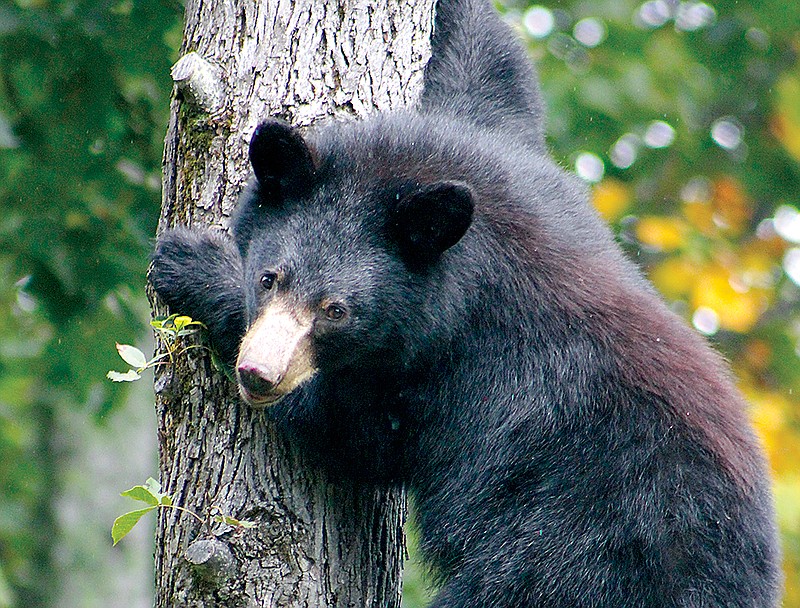Each spring, young male black bears emerge from their dens and strike out to find new territories.
While sightings of these misguided youths certainly grab the attention of people living in neighborhoods bordering bear country, the bruins often move on as long as people don't give them a reason to stay.
Bears are part of Arkansas and have been since before the state was settled. Arkansas once was so rich with black bears that its official nickname was "The Bear State." Unrestricted hunting for their fur and fat led to the bear's rapid decline by the early 1900s. Thanks to the efforts of conservationists and biologists, the state again has bears throughout much of the areas they once roamed.
Female bears will spend two winters with their cubs. The first is when they are newborns and the second as adolescents. In their second year, female cubs will be allowed to stay in a portion of their mother's territory, but male bears are forced away to find a new home on their own.
"It's nature's way of ensuring genetic diversity," said Myron Means, bear program coordinator for Arkansas Game and Fish Commission. "The young males will wander for awhile until they find a new home with good food resources."
Open trash cans, bowls filled with pet food and areas where people have dumped cooking grease or table scraps often attract these wayward bears. Wildlife feeders also act as magnets to these young bruins.
"The first thing we tell anyone to do when they have a nuisance bear in the area is to put away any possible foods, including deer feeders, bird feeders and dog food, and to keep trash cans locked or put away where they are inaccessible for a couple of days," Means says. "That's usually all it takes for the bear to move on."
If a bear is allowed to stick around, it can begin to associate people with a free meal. That's when trouble starts. Means suggests people who see bears where they don't want them should make it clear they need to move on.
"Making noise, yelling and throwing a rock or two at the bear will give it the message that it's not welcome," Means said. "Bears aren't aggressive animals, and they don't have a desire for revenge or anything. They just realize the area isn't comfortable to stay in and will go away."
